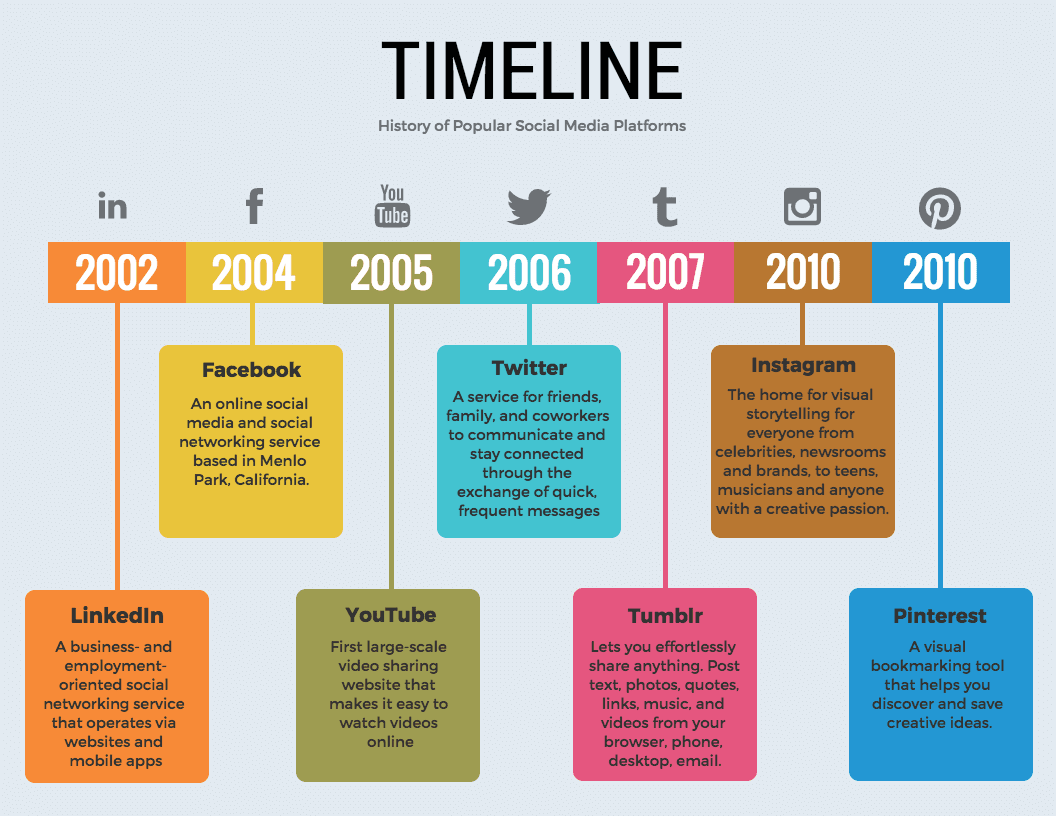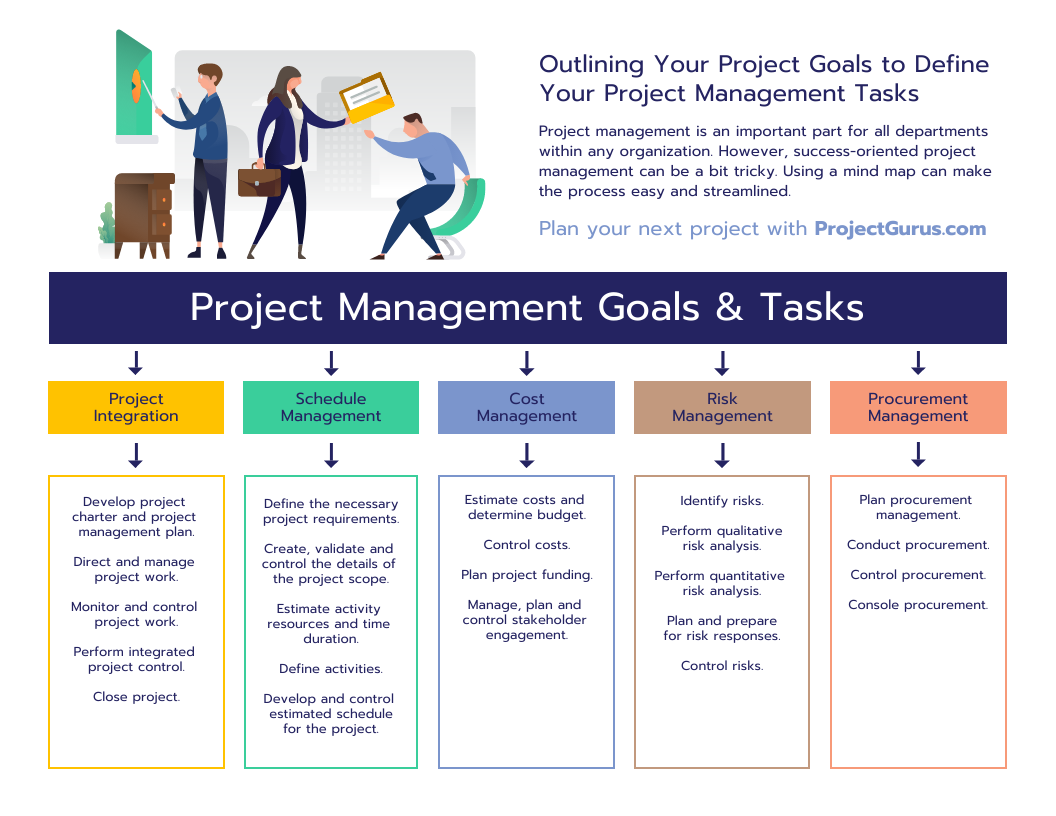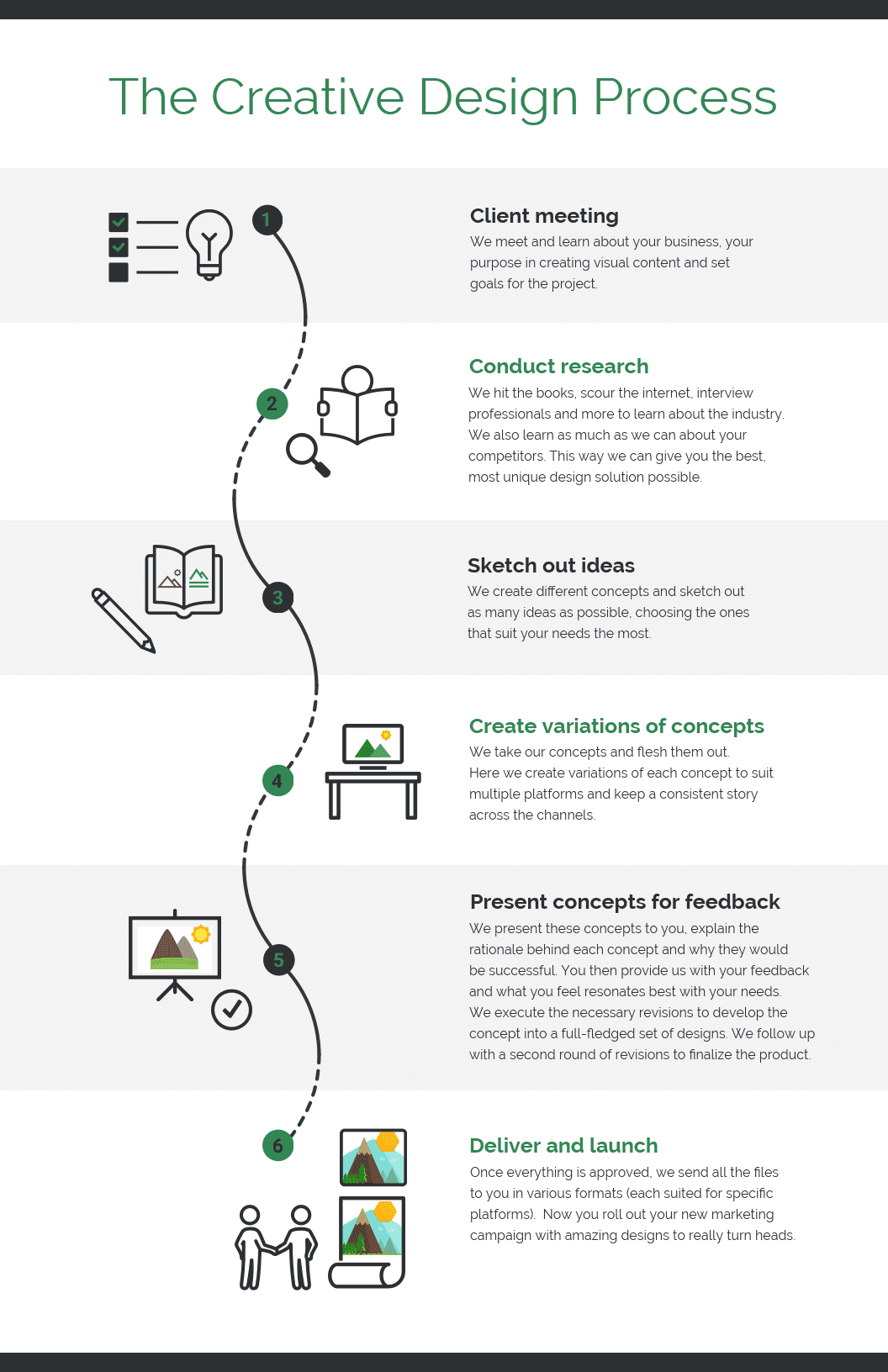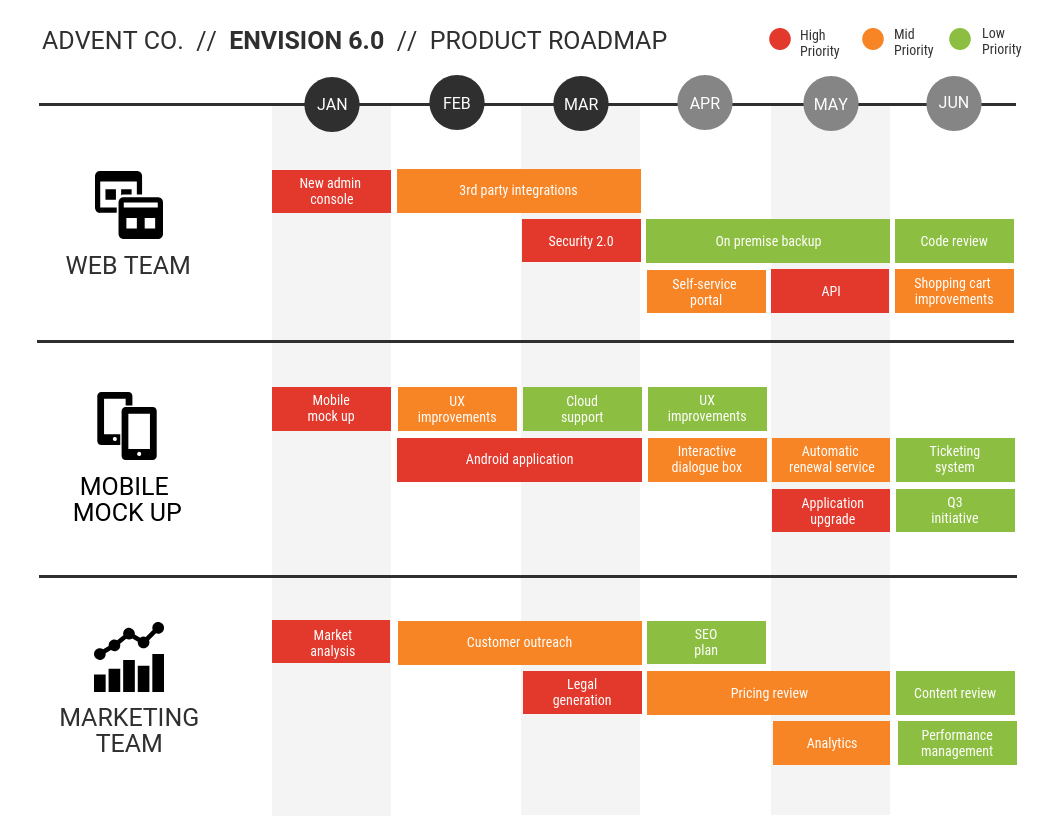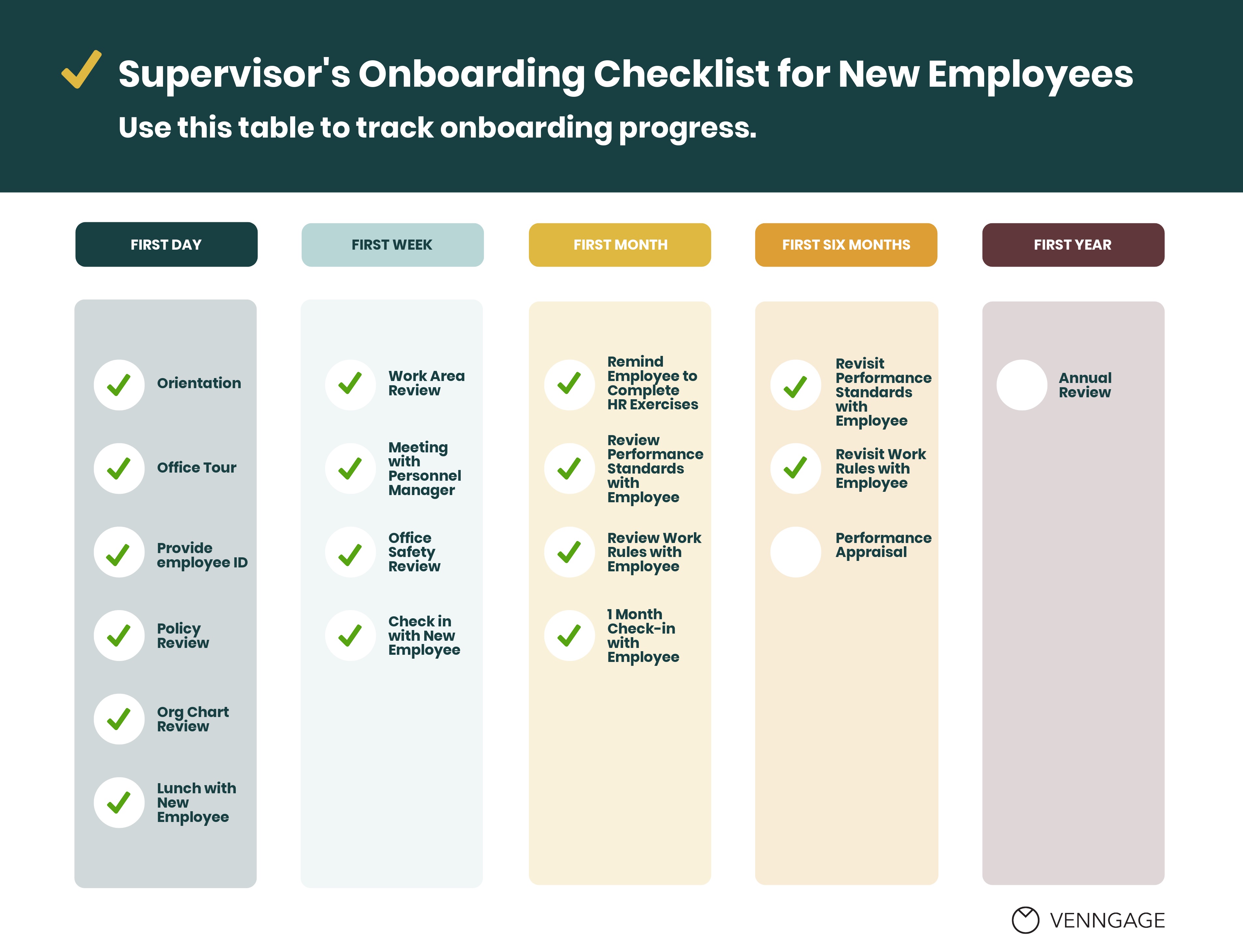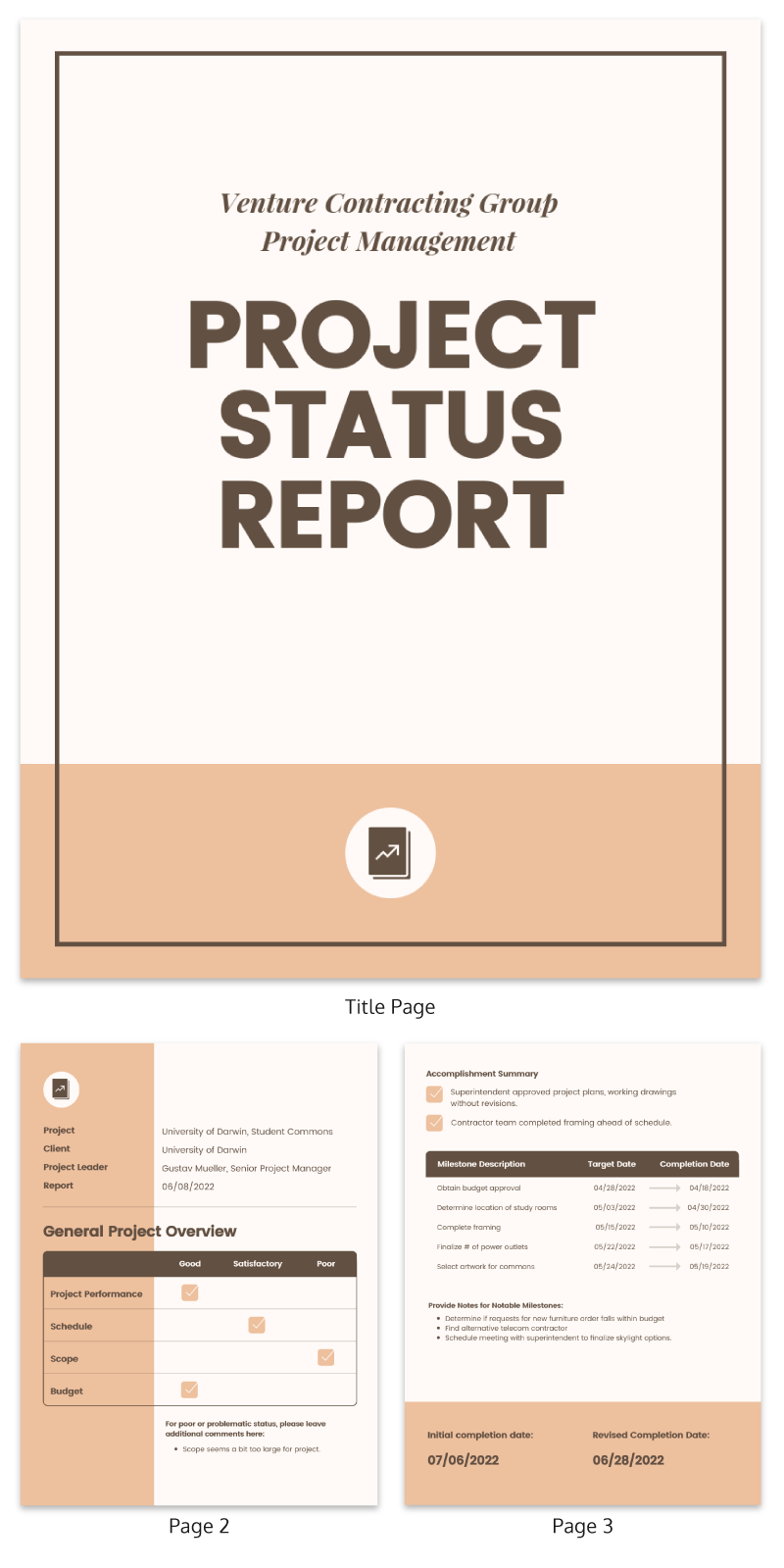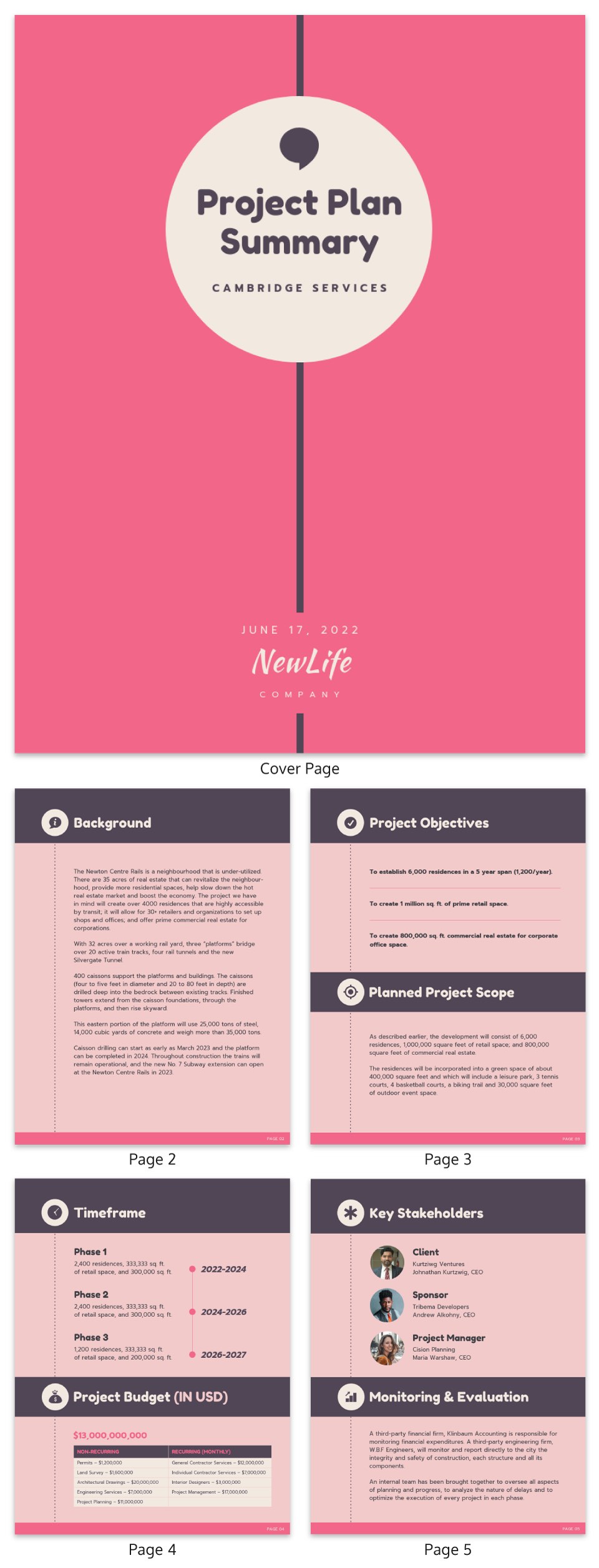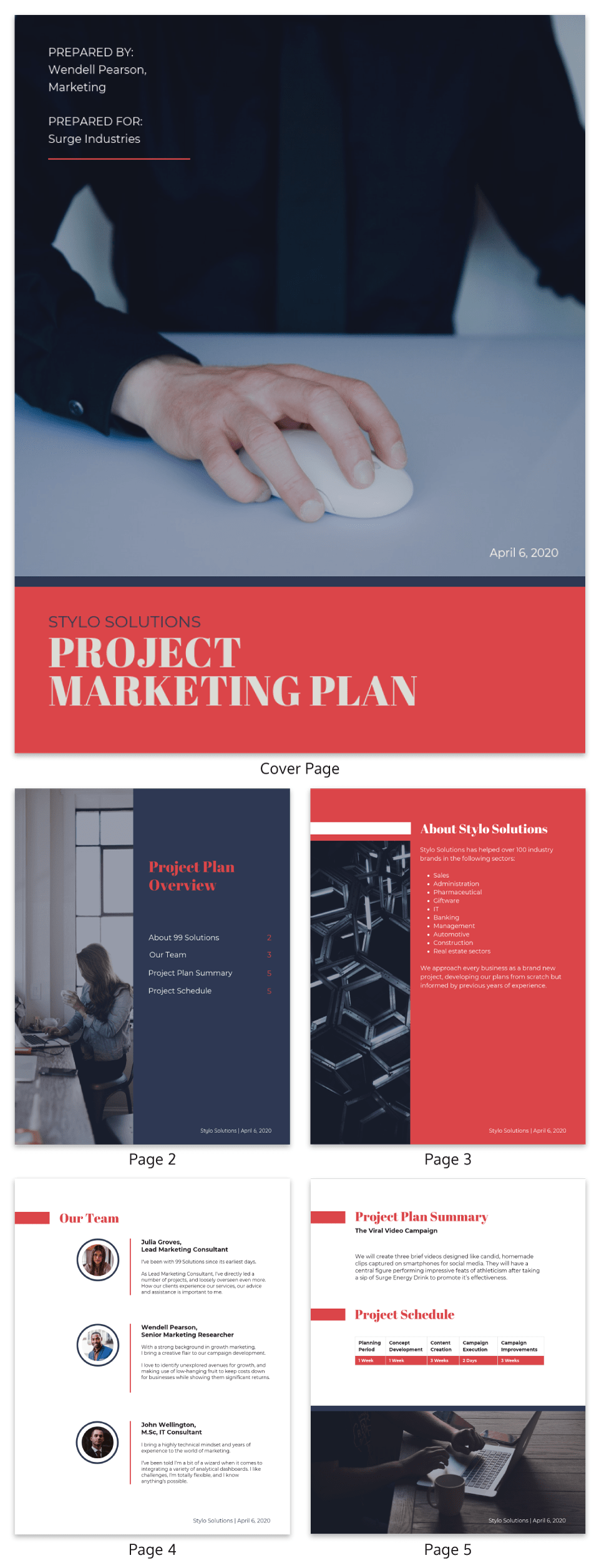Before you embark on any project, it’s a good idea to start with a plan. Specifically, a project plan. It’s even more important if you’re trying to better communicate with managers, clients, employees and more.
Why not just make a roadmap in Excel or Word and call it a day? Well, you could, but the end result will be pretty lackluster.
Not sure where to start? This guide will offer you tips for designing an engaging project plan and a bunch of creative project plan templates to help you along the way.
Project plan examples (click to jump ahead):
- What is a project plan?
- What are the key elements of a project plan?
- Project plan templates for PDF and PowerPoint
- Project timeline templates
- Simple project plan templates
- Project schedule templates
- Project checklist templates
- Project status report templates
- Work plan templates
- Process map templates
- Marketing project plan templates
- Nonprofit strategic plan templates
- Process mapping in healthcare
- Marketing plan templates for financial services
- Project plan design best practices
- Project plan examples from the business world
- Project plan FAQs
What is a project plan?
A project plan is an essential document for keeping a project on track. In your project plan, you identify the scope, goals, deliverables and deadlines of your project.
Here’s one example of a project plan in a timeline format:
What are the key elements of a project plan?
A project plan should answer these questions:
- What is the purpose of this project (what problem is it going to solve)?
- What are the main deliverables?
- What will the timeline be, including deadlines?
- Who will be on the team for this project and what role will they play?
- What resources are required to complete this project?
The problem is, people dive into writing a project plan without understanding its purpose or the importance of its various sections.
Your project plan needs to be organized, focused, readable and engaging enough to hold the attention of your team.
This is especially important if you’re including your project plan in a company newsletter, Slack channel or presentation (whether internal or to external stakeholders)–anywhere people need to understand a project at a glance.
1. Project plan templates for PDF and PowerPoint
Need a simple project plan template you can export as a PDF? Look no more. Here’s an example of a project plan mind map template you can export as a PDF document:
Just so you know, some of our templates are free to use and some require a small monthly fee. Sign up is always free, as is access to Venngage’s online drag-and-drop editor.
Venngage’s project planning templates are easy to customize using the drag-and-drop editor, and once you’ve finished your design — just download the project plan as a PDF or Interactive PDF (for clickable links).
Note that download capability is available in paid plans only. As a free user, you can share your project plan designs using a public link!
If you want to present your project plan in PowerPoint or Google Slides — you can do that with a Venngage template too! Customize a project plan presentation template like this one:
Or this one:
And once you’ve done, just click on the Download icon and choose Powerpoint as your export option:

And voilà! Now you have project plan presentation slides that you can use on PowerPoint, Google Slides or any other platforms that accept PPTX files.
2. Use a project timeline template to visualize your deadlines
When you’re first outlining your project timeline, it can be pretty overwhelming. A visual timeline helps stakeholders get a better sense of what needs to be done, and by when.
A project timeline template is a versatile way to visualize milestones processes, and goals. In fact, a clear timeline is the backbone of a solid project plan. Confusion relating to deadlines, and what is required for those deadlines, is a common problem many teams face while working on a project.
Related: How to Write a Comprehensive Project Management Plan (+ Examples)
First off, though, you want to identify your project goals. Use a simple mind map like the one below to categorize tasks according to your goals.
Now you’re ready to start planning your project.
Project plan timeline infographic template
This project timeline template uses different colors to categorize tasks for each week. It’s a compact and creative way to present a project plan. In fact, horizontal timeline layouts are popular because they’re easy to slot into a presentation.
Related: 120+ Best Presentation Ideas, Design Tips & Examples
That said, horizontal timelines can be harder to fit onto letter-sized pages. If you plan to do so, use less than seven points and keep your descriptions for each point brief.
Planning process project timeline template
This snake timeline layout like the one above is great for timelines with lots of points and not much text. They’re very space efficient. Only use them when you want to focus on the visuals, perhaps when you’re presenting a high-level overview to a boss or client.
Monthly project milestones timeline
When it comes to designing project reports and charts, color is particularly effective for categorizing information.
You can use color to categorize tasks by type, week, the team involved etc. This project timeline template uses alternate colors for the rows (black and orange) to keep the reader’s eye engaged.
It’s also important to break your projects down into smaller tasks with staggered deadlines. The project timeline template above includes specific dates for tasks to complete within each month.
Nonprofit fundraising project timeline template
This project timeline template would also work well on a presentation slide thanks to its size and the fact that’s it’s a high-level overview.
Its unique design and bright colors would be great for pitching potential investors, whether it’s for a new business idea or to raise funds for your nonprofit.
Related: How to Create a Business Plan to Win Over Investors (+Templates)
Creative design process project timeline template
Project timeline templates can help you step back and create a big picture overview, especially when you’re in the initial stages of planning a project.
The above project timeline template provides an overview of all the steps involved in a particular project. It also uses icons to add visual interest and easily identify different stages.
You could insert this project timeline into a client pitch deck, business plan or proposal.
Related: How to Create a Timeline Infographic: The Definitive Guide
3. Use a simple project plan template to keep things in perspective
When your team is working on a large project it’s sometimes hard to keep everything in perspective. You may have been working on a certain part for so long that you forget what came before it. Or what tasks come after that you need to be aware of.
Without all of this information, mistakes will be made and delays are guaranteed. That’s why it’s a great idea to use a simple project plan template that includes critical information like scope and timeframes.
Simple project plan example
This simple project plan template uses icons to help communicate what’s part of the scope of work, and as bullet points. Simple to edit (and clean and modern to look at), it also covers all the bases.
Setting out a timeframe with actionable short-term and long-term goals is key, as well as outlining how you plan to evaluate and monitor your progress.
Related: The 4 Project Life Cycle Phases (With Templates)
Your project plan should be the source of truth as the project progresses, so it’s important to have the scope, timeframe, budget and evaluation processes set out from the beginning.
Basic project plan example
Use a basic project plan template when all you need to do is outline key milestones and tasks. You can use it as a simple roadmap for your team to refer to to help keep them organized and on track.
This basic template would also work well as a presentation slide if you’re presenting to stakeholders.
Pro Tip: Learn how to use Venngage templates with PowerPoint in our guide How to Make Better Infographics for PowerPoint.
Simple project communication plan example
Nothing is more critical to the success of a project than effective communication, according to a research paper for the Project Management Institute. In fact, the negative effects of bad communication on cost and timelines increase as the project progresses.
That’s why from the outset of a project you should have a project communication plan, such as the one above. The plan should include what formats are appropriate for communicating types of content (email updates vs. a formal report, for example), to who and when. Your project communication plan is key in ensuring complete transparency throughout your team projects.
Simple roadmap project plan example
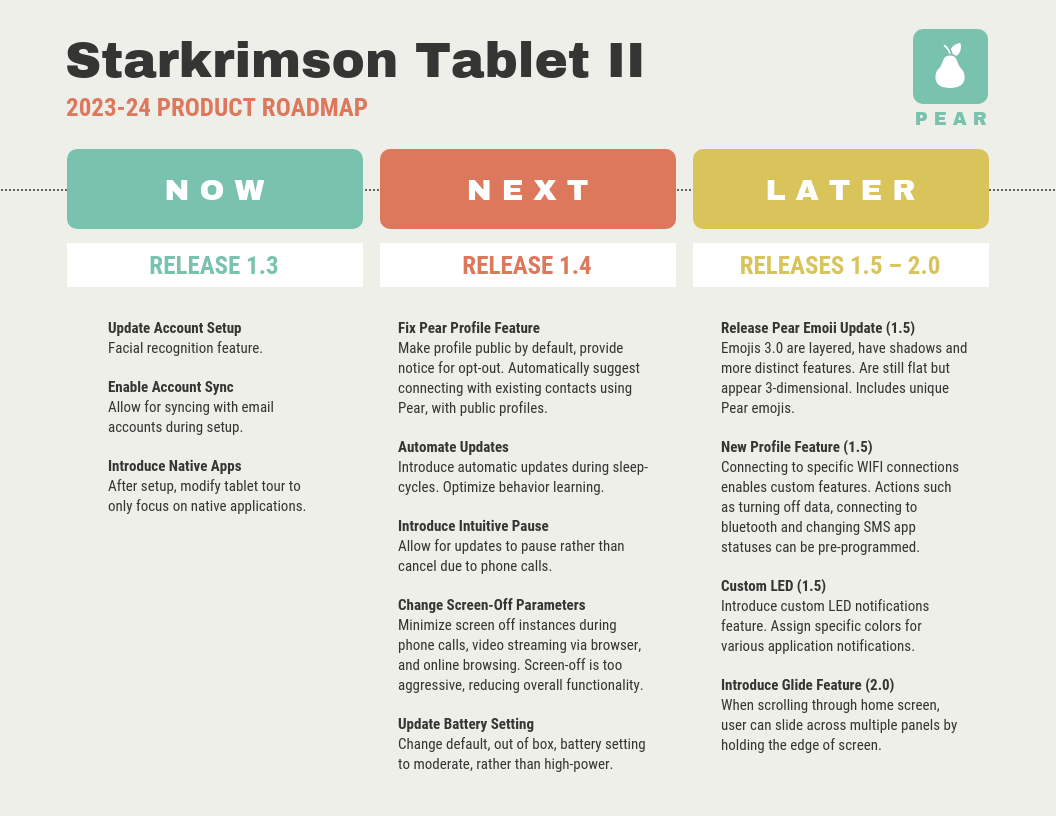
A Next, Now, Later plan can also really help your team out. The simple project roadmap template above keeps each of the steps extremely simple and easy to follow.
Plus, it clearly states exactly what this team is working towards with each of their releases.
Also, since most project plans aren’t set in stone–they’re agile documents that will probably have to be adjusted along the way–sometimes a much simpler project plan template is the best way to go. It’s easier to edit and therefore more flexible.
Simple multi-page project plan example
If you need a multi-page project plan, you can still keep it simple and easy to understand by organizing your information in an engaging way using illustrations, big headers and lots of white space, like in the template above.
4. Use a project schedule template to outline a roadmap towards completion
Sometimes you’re going to have to present a project plan to people outside the company. These days it might be an investor, a new client or a potential hire.
You should probably create a simple project schedule (or roadmap) in these instances. And be sure to have it ready whenever you go into a meeting.
This type of project plan helps boil down complicated internal processes into something accessible.
Simple project schedule template
This project schedule template quickly communicates what teams are responsible for what tasks over certain periods of time. Very easy to grasp.
You can also categorize your tasks by priority. Simply pick a corresponding color for each level of priority, like in the monthly project schedule template below.
Pro Tip: Use Venngage’s simple Roadmap Maker tool to create roadmaps in minutes. No design know-how required.
Modern project schedule example
A vertical infographic is a creative way to present the tasks and timeline required to execute on a project. Big icons help the reader better understand each step. Plus, the milestones are broken out and easy to skim.
Timeline project schedule example
Not looking for a roadmap? You can also use a timeline infographic to plan out your schedule. Not only can you add tasks but also any risks, dependencies and constraints at each stage which might throw off the expected completion date.
Pro Tip: Once you’ve customized your project plan template, you can download it in Venngage’s online editor as a PDF, Interactive PDF or PNG.
5. A project checklist template offers a high-level overview of key deliverables
While a project checklist can be incredibly detailed, it can also provide a more generalized, bird’s eye view of a lengthy process.
Onboarding project checklist example
Onboarding new employees is a project that practically begs for a checklist. It’s a simple and easy-to-reference way to documenting the onboarding process. You’ll keep both trainer and trainee motivated and on track.
In the project checklist template above, a supervisor can easily glance at their company’s extensive onboarding process and keep track of their responsibilities pertaining to new hires in their first day, week, month, even year.
Simple project checklist example
Want a way to quickly add and delete items in your checklist? The above project plan checklist is a smart template, meaning you just need to press Add or Delete to add or remove rows.
HR project checklist example

This project checklist template is for onboarding, but you can customize it for any project and divide the tasks by milestones.
Send the checklist to your team so they know exactly what’s required of them.
Pro Tip: Not a designer? No problem. Use Venngage’s Checklist Maker to create free checklists online today.
6. Use a project status report template to track your progress visually
Once your team dives into working on a project, there will almost certainly be changes that need to be made to the project plan. Unforeseen obstacles come up, certain tasks take longer to complete than expected, and other snags happen.
That’s why it’s important to not only set your goals, but to also report on your progress throughout the process. Creating a project status report will help you keep track of your progress, while also communicating it effectively with other parties.
Monthly project status report template
Your report doesn’t need to be complicated. This project status report template provides a simple one-page snapshot that stakeholders can understand at a glance. The status of each item and any issues are easy to skim.
Simple project status report example
This project status report template features a cool “project completion” bar so everyone can know at a glance the current status. This template goes beyond issues to highlight any risks, variables or assumptions that might interfere with meeting the next milestone or closing out the project.
Project management status report example
If you’re submitting a status update to your stakeholders, however, you may want to include more context. That’s where a multi-page project status report template may be necessary.
When creating a multi-page project plan, be sure to include a summary. This will help make your project plan more reader-friendly and easier to scan.
Pro Tip: With highly collaborative project plans, it’s important to make them easily accessible to all team members. Real-Time Collaboration lets teams work together to design plans, provide feedback, and make edits in real-time. Learn about Real-Time Collaboration here.
7. Work plan template
Want a simpler solution to creating a work schedule? Try a work plan template. Simply add your text to fill out the plan for each day. Or use our calendar maker tool to browse schedule templates and customize them for free.
Sales action work plan example
This sales work plan template goes beyond planning. It also helps managers assess the quality of the work and if the employees in question were able to meet their deadlines. Which is a great asset come performance review time.
Simple work plan example
Project execution depends on properly mapping out all the tasks and activities first. Then, once you get going, you can monitor progress based on your roadmap. Continual monitoring is key and be prepared to revise your goals and your roadmap as the project progresses.
This simple work plan template clearly outlines which team is responsible for what, and when, so you can keep everyone aligned as work is carried out.
8. Use a process map template to communicate across teams
Communicating across teams can be a nightmare sometimes, especially as your company continues to grow. It’s common for different people to call a certain thing many names, and that can cause unneeded confusion. Like how people in call a soft drink: “soda”, “coke” or “pop”, but it means exactly the same thing.
So assigning common titles for each step of the process in your project plan can make communication a bit easier.
In the process map template below, they used eight simple keywords for each step of their project.
The common words and phrases in this simple project planner template will make communication a lot smoother. Now the product team will know exactly what you mean when you say you’re working on the “Sketch” step.
This project process template simply relies on “Step 1” etc. labelling to keep things straight.
Further Reading: Our guide to creating process infographics, with templates.
9. Marketing project plan templates
The success of a marketing plan relies on setting clear goals–including specific metrics and outlining the steps your team will take to get there.
Content marketing project plan example
This marketing project plan template is incredibly detailed, with sections for goals, competitor analysis, workflow and more. Click on the template image for a full preview.
Project management marketing plan example
That said, sometimes you need a simple project marketing plan to help pitch your agency and provide a high-level overview, like this template does.
Further Reading: Our guide to marketing plans, including formatting tips, how to visualize data creatively (and easily) and templates to get started.
10. Nonprofit strategic plan templates
Nonprofit strategy and planning are two different animals–planning is implementing a strategy, says sgENGAGE. To get started, you’ll want to do a SWOT analysis to fully understand your nonprofit’s unique strengths.
You can also build out a full strategic plan to identify priorities, goals, key stakeholders and more. This infographic lays out best practices for this process; click the image to see the full visual.
Here we’ll look at specific aspects of the planning process in nonprofits.
Nonprofit fundraising plan example
A fundraising timeline can be critical to your campaign–from start to finish. Include it in your fundraising plan to illustrate targets.
Then, add it to your internal reports as the campaign progresses to show the amount raised to date. You can also release it to your donors to motivate them to contribute as you inch closer to your goal.
You can also include a fundraising timeline in your final report to your nonprofit’s donors to show what they achieved. It’s the perfect way to say thank you and it’s also a great way to engage donors and encourage repeat donations.
Nonprofit communications plan example
A communications plan should prepare your organization for key events or dates, but be flexible enough to adapt to changing times, advises the Council of Nonprofits.
It’s important to nail out your goals, who your audience is (personas) and what channels and stories will be most effective for said audience. This template addresses all these areas.
Also think about including a timeline of key events and special days such as World Mental Health Day.
Further Reading: Our complete guide to nonprofit marketing or nonprofit communications.
11. Process mapping in healthcare
Using project process maps in healthcare help stakeholders understand an entire process, without resorting to confusing documentation. Visuals help with comprehension, especially regarding the sequence a project will follow.
These visuals can take the form of timelines, flowcharts, step-by-step infographics and more. This planning process timeline is a high-level overview of building a new hospital, from service offerings to architectural plans.
Process mapping in healthcare also helps with outlining an existing system and then analyzing how that system can be improved.
Learn more: Venngage for Healthcare Organizations
This process map looks at improving how healthcare organizations put in place new medical administrative processes.
Further Reading: Our post on branding guidelines, including a template specific to the healthcare industry.
12. Marketing strategy plan templates for financial services
Financial services have typically relied on referrals for new customers. That said, millennials and Gen X prefer to do their own research online, making newer marketing strategies such as search engine optimization, content and email marketing essential.
Our guide to marketing plans has in-depth templates to help you plan what strategies will work for you. Here we’ll focus on infographics and diagrams for high-level marketing strategy planning for financial services.
This layer infographic can be edited to visualize key parts of a marketing plan such as local SEO or video marketing.
You can also use a mind map to plan out your entire marketing strategy, from outreach to content to inbound, like in this template.
Further Reading: Our post on case study examples, with templates that work across industries.
Project plan design best practices
1. Illustrate steps in a process with icons
Multiple studies have found that people tend to remember images better than words. With that in mind, look for ways to incorporate visual memory-prompters in your project plan design.
Icons are one type of visual that can be used to make information more memorable. Pair an icon with an important piece of text to help it stand out and stick in the reader’s mind.
For example, this project timeline template uses an icon to illustrate each step in the process. This helps reinforce the information, and gives readers a visual to refer back to:
2. Use a timeline to show an overview of your project plan

While your project plan should include the details of your project, offering a visual summary will help keep your team on track.
Use a project timeline template that offers an overview of your project’s phases, as well as the expected beginning and completion dates. Your team will be able to refer back to the timeline quickly, without needing to read through a bunch of text.
For example, this project timeline template outlines that tasks and milestones for each month in a year:
3. Incorporate the theme of your project into your design
While your priority when designing your project plan should be function, finding ways to make your design engaging is still important.
After all, your project plan will help inspire confidence in your team–and the people who will be funding your project. Especially if you can inject some of your branding into the design.
Adding surprising design elements will help engage and excite readers. An easy way to do this is to include icons and images that reflect the theme of your project.
For example, this project planning template for a baking company incorporates a donut into the design:
4. Use a chart to track your project’s process
Certain phases of your project may end up taking more or less time than anticipated. That’s why it’s valuable to track your progress, so you can adjust your goals. Tracking your progress will also help you make informed decisions when planning future projects.
You can track your project using a flexible chart that’s easy to update, like the chart templates offered by Venngage. Our process infographic templates can also come in handy here, if you want to visualize the phases in a project.
For example, this project planning template uses a simple bar graph to track the duration of each phase. The updates are tracked in the top right corner:
With Venngage, you can create multiple copies of a design. If you’re updating a chart or timeline, it’s a good idea to keep a copy of past iterations.
5. Use a project schedule template to keep track of tasks or events
Are there specific dates that certain tasks needs to be completed on? You may want to create a calendar that specifies what should be done on what day.
For example, if your team is executing on an event like a conference, then a calendar is necessary for keeping events for specific dates organized.
In this project schedule template, for example, the events are color-coded by type, making it easier to scan:
6. Rate your process using an icon chart
An icon chart uses (you guessed it) icons to represent units of measurement. When coming up with ways to embellish your project plan design, look for opportunities to visualize information that you want to emphasize. An icon chart is a creative and effective way to do that.
For example, this project status report template uses check mark icons to rate the success of three different aspects of the project:
7. Illustrate how each project is connected with a flowchart infographic
At Venngage we really love using flowchart infographics in all facets of our planning. These graphics are a solid way to show how a project should progress and how each part is connected to each other.
And when your team is working on a complicated process, a visual representation can help you keep it all organized.

In the project plan example above, they used a flowchart infographic to work through their productivity plan.
This approach allowed the designers to show how each step was related, and how it affected the other steps. If they would have just listed all of that information, the relationships between all of it would be lost.
We would recommend using a flowchart to help explain how a single part works, not for an entire project plan.
With Venngage, you can make flowcharts that are functional and look great.
Project plan examples from the business world
If you need a little more inspiration for your project plans, be sure to check out some of the examples we found below.
Project management checklist
When it comes time to launch your project or product accurately tracking what needs to get done is essential.
For a smaller company, it’s easy to keep track of what everyone is working on. But as your brand grows this becomes almost an impossible task. Especially as employees start breaking into smaller teams to tackle a project.
Now a simple project management checklist like the example below can help you ensure everything gets done on time:

In this project plan example, they use a wide range of colors to break tasks down by teams. This approach will help the managers quickly see what needs to be done next.
Plus checking off tasks like this will help each team feel like they are working towards a common goal. You could even print this example off and hang it up in your office so everyone knows exactly what’s going on.
Project plan example using multiple visuals
As you have seen in this article, there’s not one project plan example that fits every company perfectly. Some simple projects may only need a flow chart, but others could need diverse visuals across a multipage marketing plan.
That’s why your project plan should use a mix of different visuals to efficiently explain the process. Or in some cases, many processes, like in the beautiful project plan below:
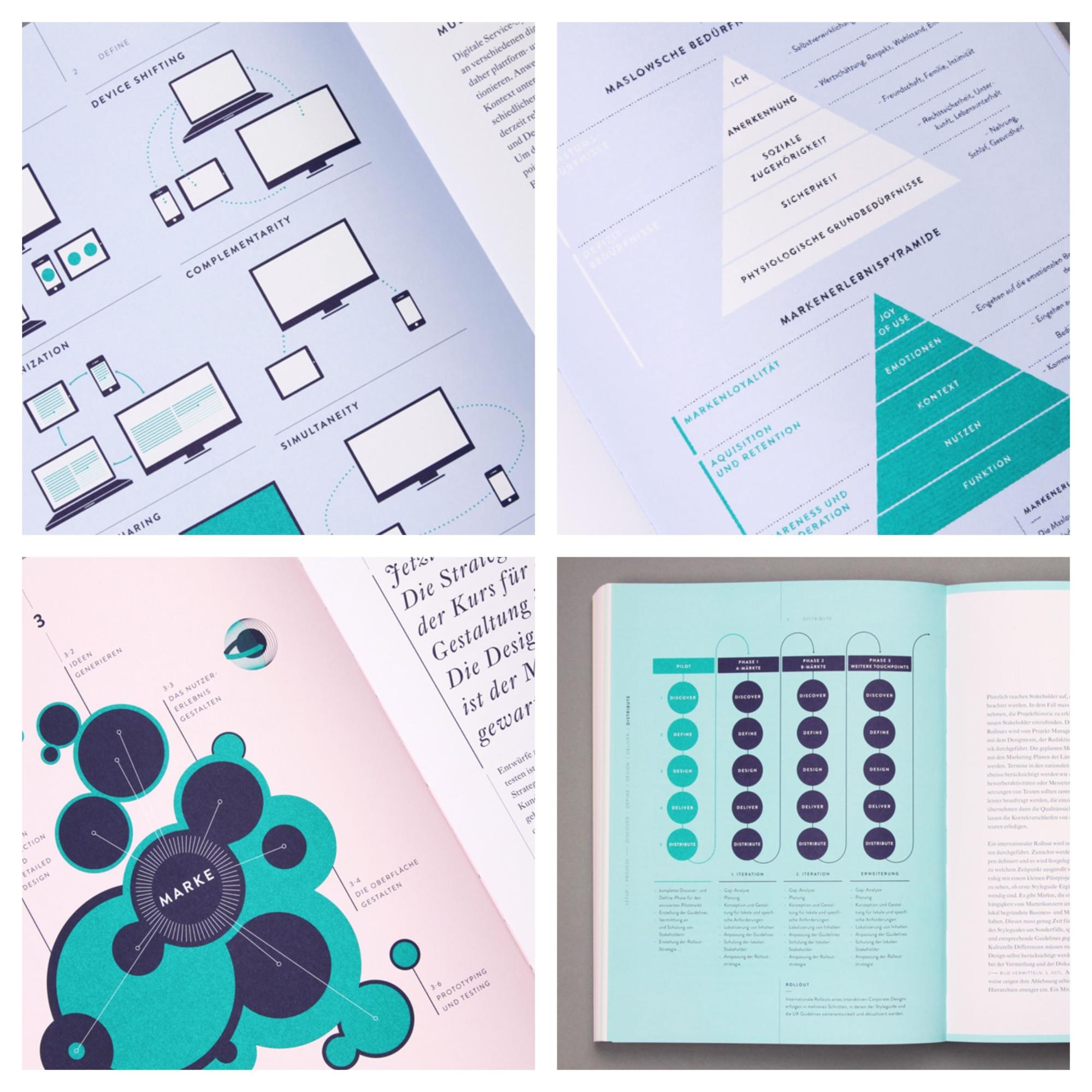
Source
This project plan example is almost a work of art, but it still gets their point across very effectively.
Featuring a flowchart to illustrate their ideation process:

A timeline project plan to break down the release schedule:

And even this unique bubble chart:

Overall, it’s one of the most unique project plans we have ever seen.
Project plan example that focuses on deliverables
At Venngage we try to make sure that at the end of each step in our project we have a deliverable to show for it. Otherwise, we are just spinning our wheels and working on things that don’t really matter at that step.
If you weren’t aware, a deliverable is something tangible that you can show to the rest of the team. Like in this simple project planner template, they include deliverables like a report or a presentation:

A lot of the time, simple project plans fail because they don’t list deliverables or the ones they do are too vague.
For example, a good deliverable is very descriptive and has a due date. A bad one is open and never really has an end date in mind.
Just remember to be realistic when planning your project, and you will be set.
Project plan example that breaks down tools and processes
Sometimes telling your team to just go do something is not the best course of action. Especially when there’s is an approaching due date that needs to be met. It’s safe to say that a lot of time will be wasted as they try to figure out where to start.
However, a great planner will actually give these team members the tools they need to succeed. Just like they did in this project plan sample for a startup weekend:

At the bottom of this bold project plan, there are a handful of tools and processes that should be followed at each step.
Now, these people can hit the ground running and get their tasks done on time. Instead of wasting half the time searching for the solution.
Infographic project plan example
Good design work is consistent, it’s as simple as that. You want each of your graphics to feel and look the same throughout. Otherwise, people are going to focus on the random design elements, instead of your important content.
Think about how much a simple misspelling distracted you in an email or presentation. Inconsistent design choices are kinda like typos in the design world.
Additionally, this consistency can help you quickly distill info to a reader. Design elements like color, shapes, and icons can add a ton of context to any complex project plan.
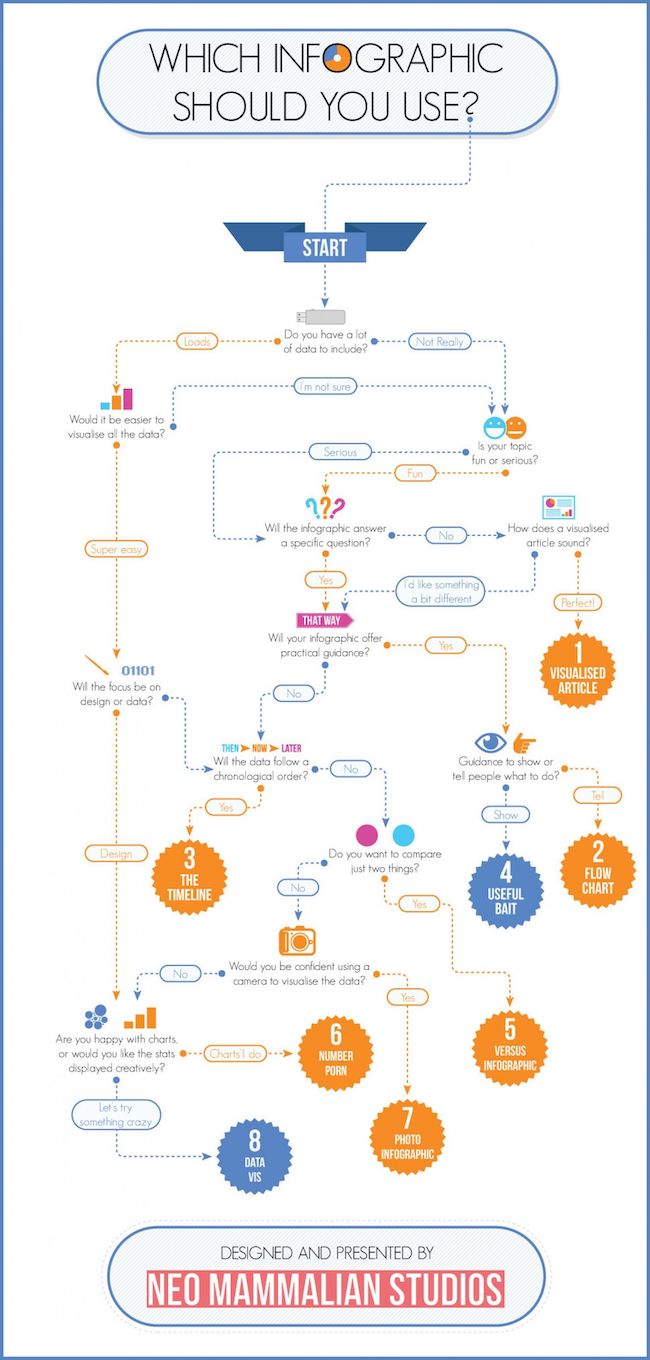
In this project plan infographic, they use colored lines to indicate the answer to a question. Then they added simple flat icons to give each question some supporting info. And a single shape to illustrate the deliverables for each process.
This may not be the most traditional project plan example, but it does get the point across with its many visual elements.
Project plan FAQs
How do you plan a project from start to finish?
Actually starting the process is one of the hardest parts of project planning. This is because there’s so much potential, you might not know what to begin with.
Your team may have so many ideas, that it becomes overwhelming and unorganized in a manner of minutes.
So if you’re not sure where to start, use one of these charts to get the creative juices flowing.
With this simple process map template, you can kick off the planning in a more structured way.
Each step will help you define goals, future plans and a ton of other metrics without getting distracted and lead you through planning a project from start to finish. This simple project plan chart has the same objective.
How do I use Venngage to create a project plan?
It’s simple to modify the project planning templates in this blog post with our drag-and-drop online editor.
Here’s a sneak peek at how our editor works, including the text editing bar, icon and stock photo library (free), photo upload function and more.
Here’s how to get started:
- Sign up for a free Venngage account.
- Browse our project plan templates (some are free, some are paid).
- Click the template you like and start customizing it in our simple online editor.
- Upgrade to a paid plan to download your project plan as a PDF, PNG or in PowerPoint format.
In summary
With these foundational tips, you’ll be well on your way to creating an impressive — and effective! — project plan. Remember, a well-executed project begins with a solid plan.
Not a designer? No problem. Create an engaging project plan with Venngage, the simple design tool for business communication.































